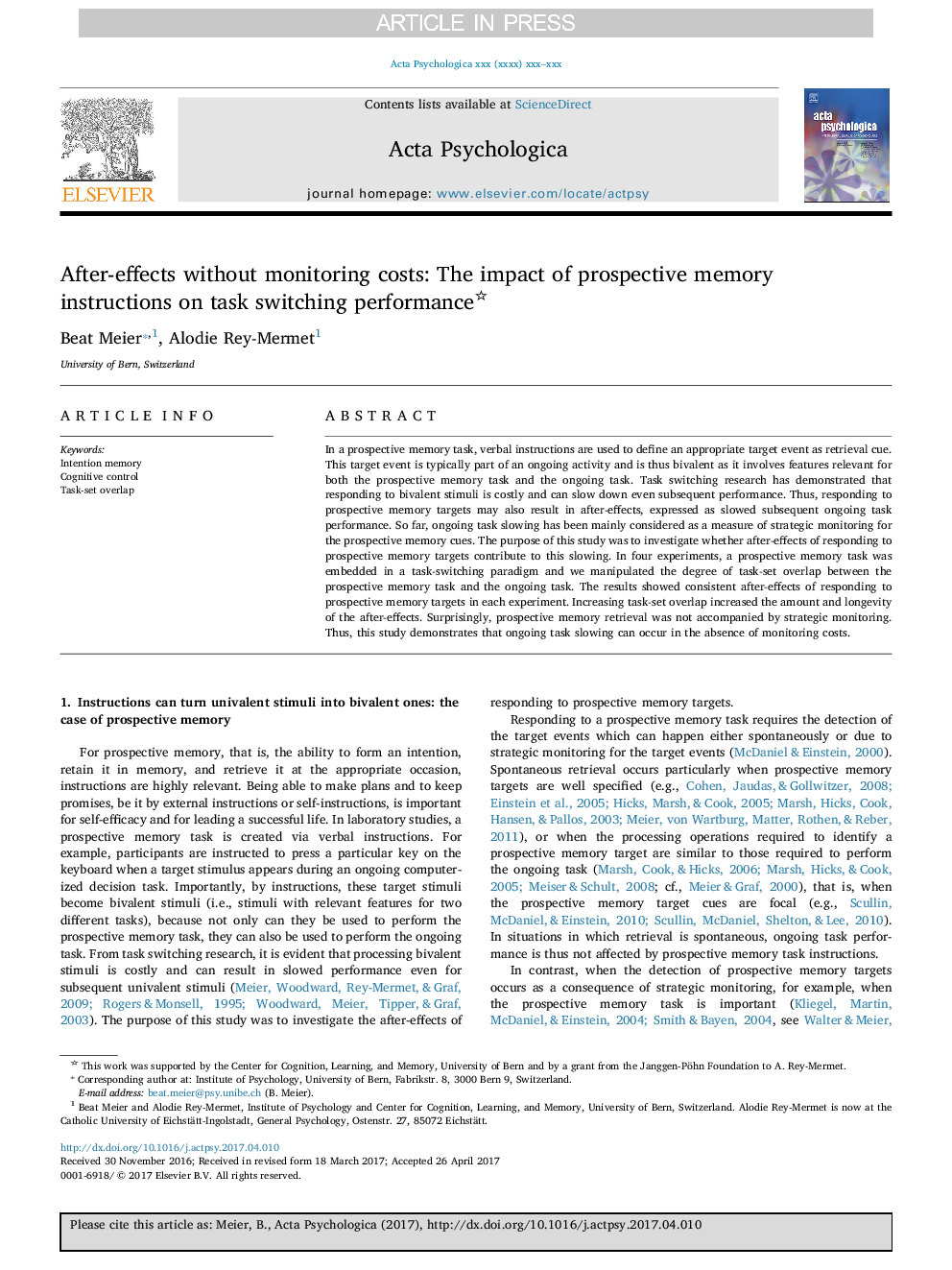ترجمه فارسی عنوان مقاله
پس از اثر بدون هزینه های نظارت: تاثیر دستورالعمل های حافظه احتمالی بر عملکرد سوئیچینگ کار
عنوان انگلیسی
After-effects without monitoring costs: The impact of prospective memory instructions on task switching performance
| کد مقاله | سال انتشار | تعداد صفحات مقاله انگلیسی |
|---|---|---|
| 154534 | 2018 | 15 صفحه PDF |
منبع

Publisher : Elsevier - Science Direct (الزویر - ساینس دایرکت)
Journal : Acta Psychologica, Volume 184, March 2018, Pages 85-99
ترجمه کلمات کلیدی
حافظه هدف، کنترل شناختی، همپوشانی وظیفه
کلمات کلیدی انگلیسی
Intention memory; Cognitive control; Task-set overlap;
ترجمه چکیده
در یک کار حافظه آینده نگر، دستورالعمل های کلامی برای تعریف رویداد مناسب هدف به عنوان نشانه بازیابی استفاده می شود. این رویداد هدف به طور معمول بخشی از یک فعالیت مداوم است و به همین ترتیب دوطرفه است، زیرا شامل ویژگی هایی است که برای هر دو کار حافظه آینده و کار انجام شده مرتبط است. تحقیقات سوئیچینگ کار نشان داده است که پاسخ به محرک دو طرفه هزینه زیادی دارد و حتی عملکرد بعدی را می تواند کاهش دهد. بنابراین، پاسخ دادن به اهداف حافظه آینده ممکن است در نتیجه اثرات ناشی از عملکرد، که به تدریج کاهش یافته است، بیانجامد. تا کنون، کاهش کارها به طور مداوم به عنوان معیار نظارت استراتژیک برای نشانه های حافظه آینده شناخته شده است. هدف از این مطالعه بررسی تأثیرات واکنش به اهداف حافظه آینده نگر در این کاهش است. در چهار آزمایش، یک کار حافظه آینده نویسی در یک پارادایم سوئیچینگ تعبیه شده بود و ما میزان همپوشانی مجموعه کارهای بین کار حافظه احتمالی و کار جاری را دستکاری کردیم. نتایج نشان داد که پس از اثر واکنش به اهداف حافظه آینده نگر در هر آزمایش ثابت می شود. افزایش همپوشانی وظیفه، میزان و طول عمر اثرات پس از آن را افزایش داد. به طور شگفت انگیز، بازیابی حافظه احتمالی با نظارت استراتژیک همراه نبود. بنابراین، این مطالعه نشان می دهد که در صورت عدم وجود هزینه های نظارتی می تواند به کندی کارها ادامه یابد.

